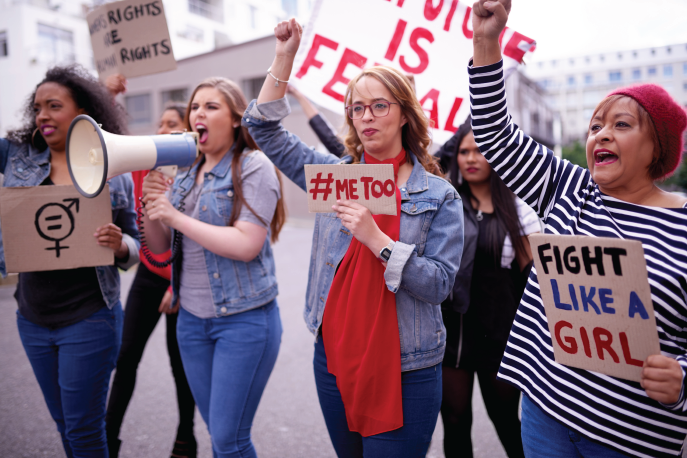Accountability, justice, and healing look different for every survivor. In many ways, we’re stuck with old paradigms of justice. Unfortunately, the criminal justice system, including law enforcement, courts, and prisons doesn’t always deliver the justice, power and control that survivors need to move on.
A recent Wellesley Center for Women study, for instance, looked at 2,887 sexual assault reports by females over the age of 12. Researchers found that when women did report sexual assault to law enforcement, only 19% of cases ever led to arrest. Of those, only 6% returned a guilty finding – and mainly due to a plea bargain agreement. Fewer than 2% of reports ever went to trial.
It’s important to note that about 30% of the study’s cases were “cleared by exceptional means,” meaning in the reports of sexual assaults by females over the age of 12, law enforcement deemed the victim uncooperative or knew the prosecutor would decline to prosecute. It’s important to note the study looked at reports for victims as young as 12 years old, or seventh graders — children in our society.
We can and must do better.
“So many ways that people experience sexual violence don’t rise to the level of crime. And so then what? You’re just out of options? This is part of the re-education and resocialization that has to happen. If you harm somebody, there has to be recourse. You have to be accountable for the harm you cause. That accountability does not have to look like jail all the time, but there has to be a system of accountability. We don’t have great examples of what that accountability can look like, and that’s where the visioning and dreaming has to come in.”
Tarana Burke in Teen Vogue’s On #MeToo Anniversary, Tarana Burke Talks About the Modern Movement’s Impact, Restorative Justice, and Aziz Ansari
We as a society can increase the number of options for survivors to pursue a new concept of justice, one they have a hand in defining for themselves. We cannot, as a society, rely on systems that perpetually fail us. It’s on all of us to fix them, and we can start with passing a bipartisan reauthorization of the Violence Against Women Act, which calls for stronger protections for survivors and resources to support preventing harm before it happens.
Learn more about RALIANCE’s full policy platform to end sexual violence in one generation.

